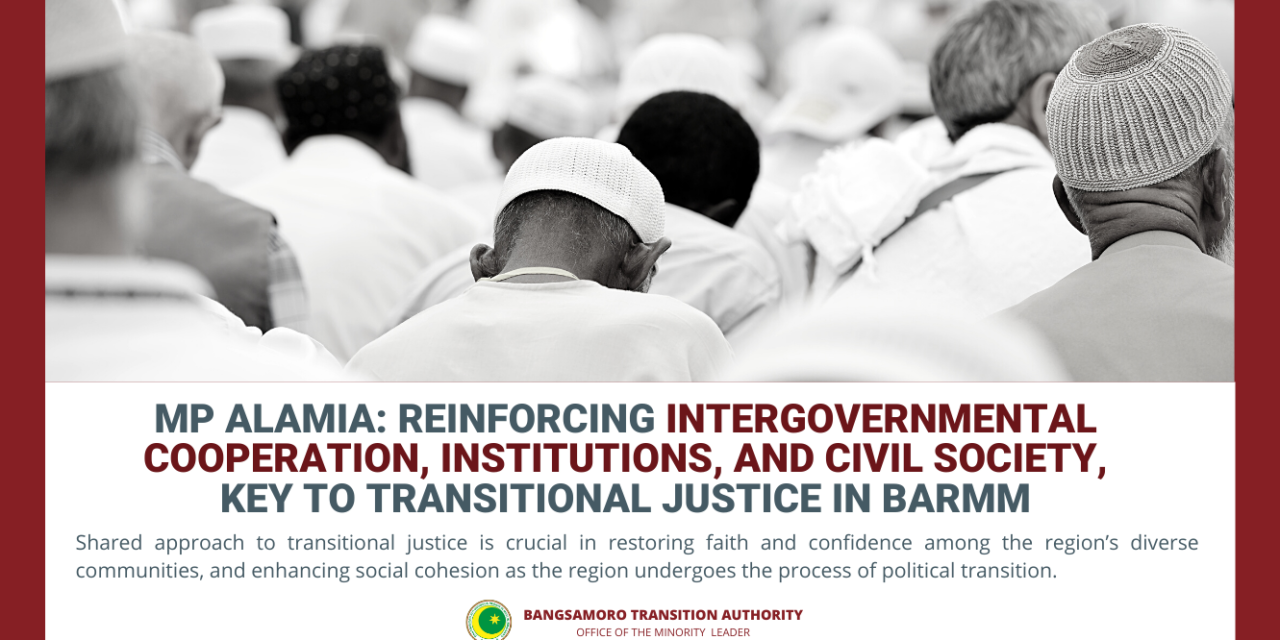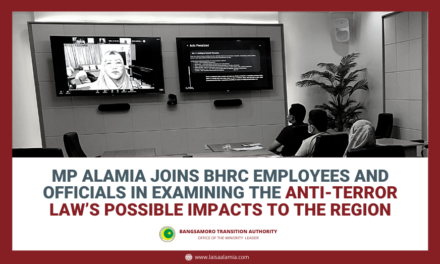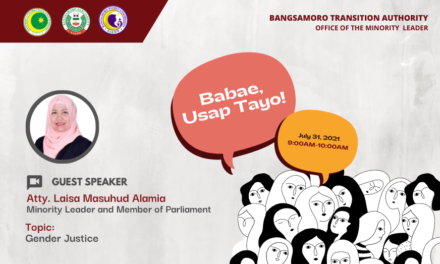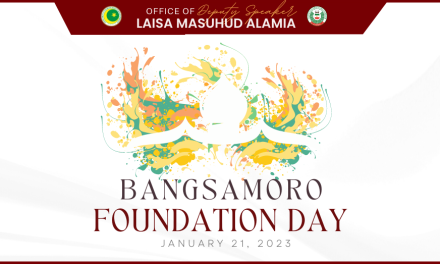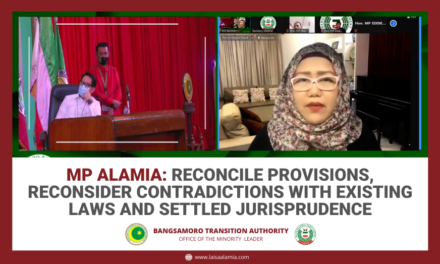“Where are we now?” Minority Floor Leader Atty.Laisa Masuhud Alamia asks participants to a two-day Transitional Justice Regional Training Camp for Bangsamoro Transition Authority and BARMM Officials, organized by the Consortium of Bangsamoro Civil Society, Inc. (CBCS) in Cotabato City.
It has been five years since the Transitional Justice and Reconciliation Commission has submitted its report as part of its mandate to “undertake a study and to make recommendations promoting healing and reconciliation among the different communities that have been affected by the conflict,” and two years since the Bangsamoro Organic Law has passed. As resource speaker, MP Alamia traced the progress that the Bangsamoro regional government has made within those time frames, and the steps that it plans to take in the near future.
The Office of the Minority Floor Leader has drafted a legislative package that operationalizes transitional justice and reconciliation (TJR) in relation to social protection. This includes initiatives towards documenting past human rights abuses, securing pensions for ex-combatants and veterans, affirming the rights of internally displaced persons, providing socio-economic support for war survivors, especially for widows and orphans, and establishing a health card program for war survivors and indigents. During her talk, she also acknowledged the important role civil society has played as a “significant force” that has pushed for TJR in the region.
So far, she notes three resolutions that have been passed in the parliament with regard to TJR measures, namely Resolution 56 which calls for the creation of a National Transitional Justice and Reconciliation Commission for the Bangsamoro and the formulation and implementation of a transitional justice and reconciliation program at the national level, Resolution 58 which calls for the creation of a regional Transitional Justices and Reconciliation Commission in the BARMM, and Resolution 62 which requires all ministries and offices to annually commemorate the anniversary of the Jabidah Massacre on March 18 as part of the regional government’s efforts towards transitional justice.
In a landmark move, the Bangsamoro Human Rights Commission was the first office created by the parliament, which is tasked to perform the human rights component of TJR until a law establishing TJR mechanism is passed. The parliament also noted the importance of promoting the “historical identity, narratives, and aspirations of the Bangsamoro people” by highlighting it in its proposed Bangsamoro Education Code.
The regional government has also committed itself to reforms that help serve as “guarantees of non-recurrence.” By adopting “moral governance” as a framework, the BARMM follows principles of “honesty, justice, and integrity” that prevent the evils of graft and corruption from taking root. “Addressing and alleviating poverty in the region” is also a key thrust of the regional government, having allocated about a third of its regional budget to social services and programs targeting the poor and underserved.
Meaningful discussions surrounding TJR cannot take place without addressing land dispossession and the need for security sector reforms following the process of decommissioning combatants. The Ministry of Agriculture Fisheries and Agrarian Reform has distributed Land Ownership Award titles to farmers covering 1,200 hectares of land, and with plans to distribute more within the year. Meanwhile, there is a need to take more steps towards reintegration, which is integral to normalization and post-conflict peacebuilding efforts in conflict-affected communities as more than 12,000 combatants have been decommissioned.
Plotting ways forward, MP Alamia notes the need for policies and institutionalization of TJR mechanisms in the region, alongside intergovernmental cooperation and collective action involving civil society and the Bangsamoro people at large. A shared approach to transitional justice is crucial in restoring faith and confidence among the region’s diverse communities, and enhancing social cohesion as the region undergoes the process of political transition.
The two-day event is being held at the Waterfront Insular Hotel in Davao City from 10-12 November 2020, in partnership with the Independent Working Group (IWG) and with the support of the Embassy of Spain and Swiss Embassy, together with the Office of the Presidential Adviser on the Peace Process.

